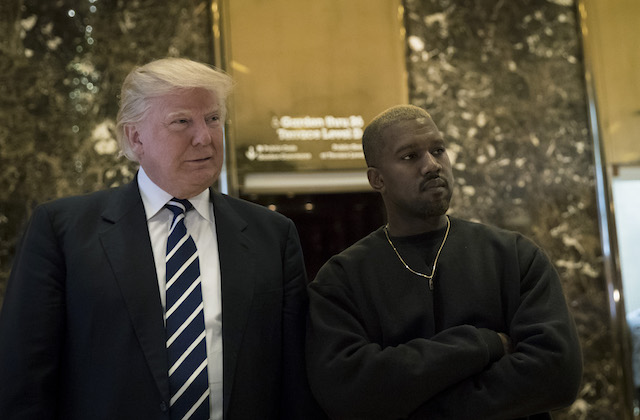In recent days, Kanye West confirmed his love for President Donald Trump and conservative figurehead Candace Owens, defended himself against "thought police" and said that enslaved Black folks chose their fate.
In an essay published by The Atlantic today (May 7), columnist Ta-Nehisi Coates delivered his thoughts on the Ye situation. In "I’m Not Black, I’m Kanye," Coates frames the musician’s recent behavior as a quest to secure "White freedom." He explains the concept in this must-read excerpt:
rnt
West calls his struggle the right to be a “free thinker,” and he is, indeed, championing a kind of freedom—a White freedom, freedom without consequence, freedom without criticism, freedom to be proud and ignorant; freedom to profit off a people in one moment and abandon them in the next; a Stand Your Ground freedom, freedom without responsibility, without hard memory; a Monticello without slavery, a Confederate freedom, the freedom of John C. Calhoun, not the freedom of Harriet Tubman, which calls you to risk your own; not the freedom of Nat Turner, which calls you to give even more, but a conqueror’s freedom, freedom of the strong built on antipathy or indifference to the weak, the freedom of rape buttons, pussy grabbers, and fuck you anyway, bitch; freedom of oil and invisible wars, the freedom of suburbs drawn with red lines, the White freedom of Calabasas.
t
It would be nice if those who sought to use their talents as entrée into another realm would do so with the same care which they took in their craft. But the Gods are fickle and the history of this expectation is mixed. Stevie Wonder fought apartheid. James Brown endorsed a racist Nixon. There is a Ray Lewis for every Colin Kaepernick, an O.J. Simpson for every Jim Brown, or, more poignantly, just another Jim Brown. And we suffer for this, because we are connected. Michael Jackson did not just destroy his own face, but endorsed the destruction of all those made in similar fashion.
Read the full essay here.
